MercoPress. South Atlantic News Agency
Tag: Brazil
-
Friday, September 16th 2016 - 06:55 UTC
Lula claims corruption charges are targeted to destroy him ahead of 2018 elections

Brazil's former president Lula da Silva defended himself against corruption charges Thursday, saying the case against him was an attempt to destroy him politically ahead of elections in 2018.Speaking a day after prosecutors accused him of masterminding a massive corruption scheme at state oil company Petrobras, the popular leader launched a wide-ranging defense of his career and legacy.
-
Wednesday, September 7th 2016 - 13:22 UTC
Rousseff despite removal remains “politically active”; she joined her family in Porto Alegre

Brazil's removed president Dilma Rousseff left the capital on Tuesday to return to her adopted hometown of Porto Alegre, capital of Rio Grande do Sul, neighboring with Uruguay. A few dozen supporters were waiting outside as Rousseff abandoned Alvorada palace, the presidential residence, which she continued to occupy during the Senate trial that ended last Wednesday with her removal from office.
-
Tuesday, September 6th 2016 - 17:43 UTC
Another major fraud investigation in Brazil: companies funds pensions; US$ 25bn alleged damages
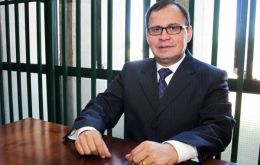
Brazilian police launched an investigation of fraud at state-run companies' pension funds on Monday, as a judge ordered dozens of senior financiers and executives away from their firms, including the chief executive of the world's biggest beef exporter.
-
Tuesday, September 6th 2016 - 17:17 UTC
Meirelles invites foreign investors to take advantage of US$ 269bn opportunities
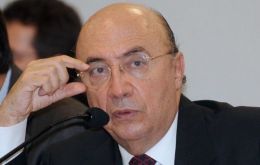
Brazil's economy could grow 2.5% in 2018 and expand at an even faster rate over the following years, Finance Minister Henrique Meirelles said at a seminar in Shanghai.
-
Monday, September 5th 2016 - 11:55 UTC
Sao Paulo police disperse five days of demonstrations against removal of Rousseff and calls for fresh elections
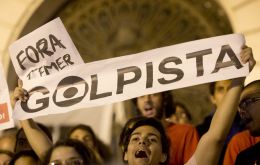
Police in Sao Paulo, Brazil's financial and industrial hub, used tear gas on Sunday to disperse thousands of demonstrators at the end of a peaceful march to protest the removal of populist president Dilma Rousseff last week in an impeachment trial.
-
Monday, September 5th 2016 - 07:13 UTC
Macri meets Temer in China; Brazilian president will visit Buenos Aires next month
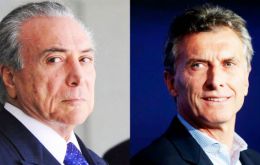
Argentina's president Mauricio Macri greeted Brazil’s confirmed head of state Michel Temer for the first time since Dilma Rousseff’s impeachment and removal last week as the two met briefly during the G20 summit taking place in China.
-
Monday, September 5th 2016 - 06:48 UTC
Pope Francis sad with Roussesff's removal and invites to pray for social justice in Brazil
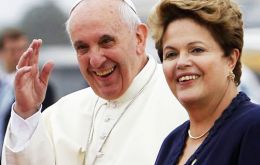
Pope Francis called for people to pray to the Aparecida Virgin to protect “all of Brazil and all of the Brazilian people in this very sad moment”, in reference to the removal of Dilma Rousseff as president and her replacement by vice-president and interim president Michel Temer, which occurred last week.
-
Friday, September 2nd 2016 - 15:01 UTC
Brazil reacts to Maduro's statements and calls its ambassador in Caracas
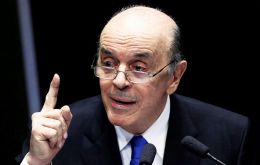
The impeachment process that led to the removal of Dilma Rousseff from office on Wednesday, August 31, increased the gap among the continent's governments. While the U.S. said that the definite ousting of the now-former president of Brazil followed constitutional proceedings, the so-called Bolivarian governments – Venezuela, Ecuador and Bolivia – reacted by calling their ambassadors back.
-
Thursday, September 1st 2016 - 11:04 UTC
Argentina recognizes Brazil's institutional process and president Temer

The Argentine government expressed on Wednesday respect for Brazil's institutional process and iterated its willingness to continue advancing toward a real and effective integration based on respect for human rights, democratic institutions and International law.
-
Thursday, September 1st 2016 - 10:29 UTC
Venezuela, Ecuador and Bolivia freeze relations with Brazil in support of Rousseff

Venezuela on Wednesday withdrew its ambassador from Brazil and froze ties in response to president Dilma Rousseff's removal from office.
